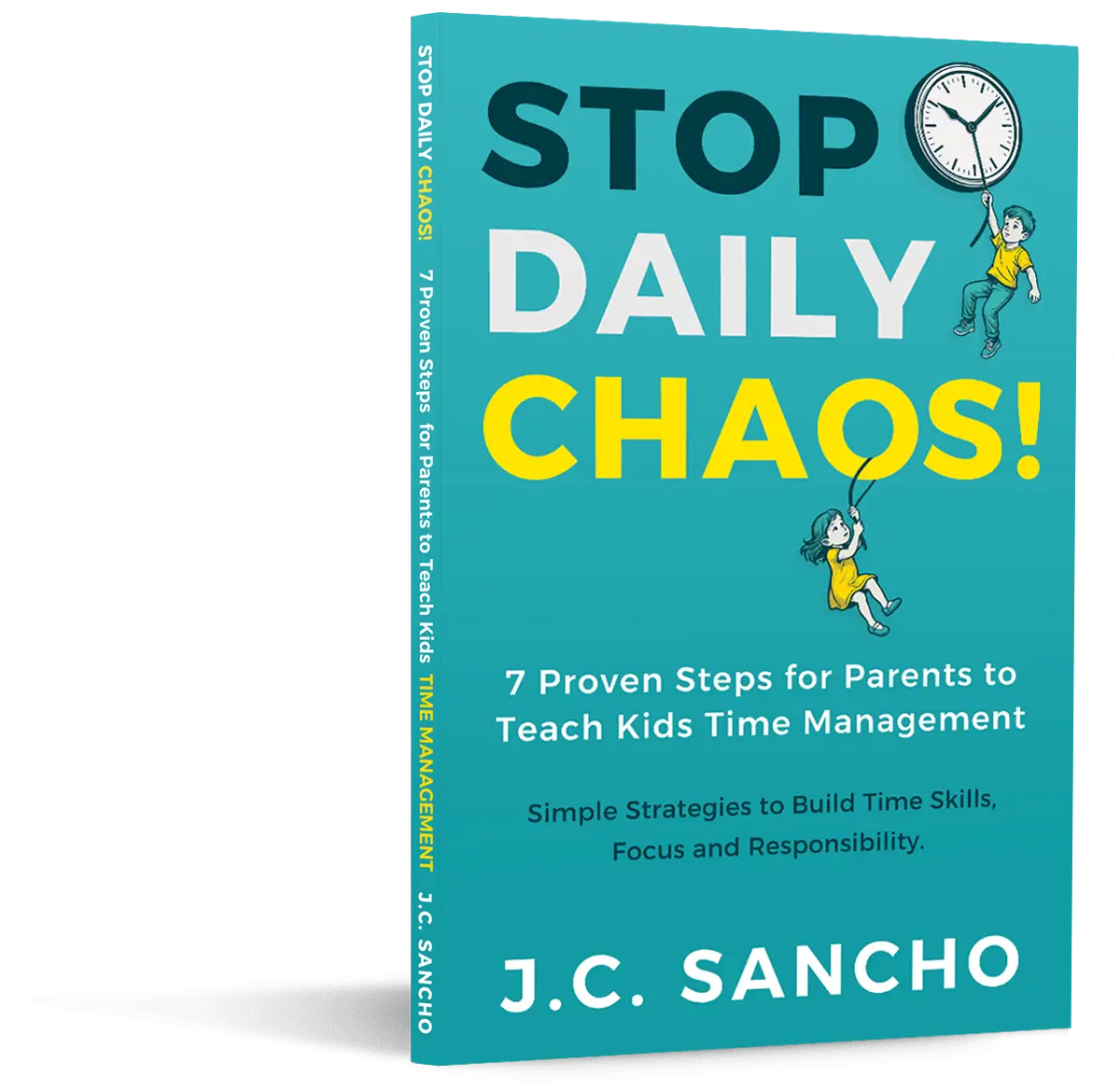Teaching children responsibility doesn’t happen overnight — it grows through daily habits, small contributions, and consistent expectations.
One of the best ways to build this foundation is through chores. Chores help kids understand effort, teamwork, and the satisfaction of accomplishment. But one question parents often face is: what chores are right for each age? And equally important: should those chores come with an allowance?
Understanding both pieces — the “what” and the “why” — helps turn chores from arguments into life lessons.
Why Chores Matter in Childhood Development
Chores do more than keep the house running smoothly. They help children feel competent and valued.
When kids contribute, they see themselves as part of something larger — a family system that depends on teamwork. Psychologists often emphasize that children who do chores from an early age tend to grow into adults with stronger work ethic, higher self-esteem, and better emotional regulation.
What chores teach beyond cleaning:
- Responsibility: Following through on tasks builds dependability and discipline.
- Empathy: Contributing helps kids understand that everyone’s effort matters.
- Time management: Balancing chores with homework and play teaches prioritization.
- Confidence: Completing tasks builds a sense of competence and pride.
So, while folding laundry or feeding the dog might seem small, these moments shape lifelong habits.
Chores for Toddlers (Ages 2–3)
Toddlers love to imitate. They see parents wiping counters or carrying laundry baskets and want to help.
At this age, the goal isn’t perfection — it’s participation.
Ideal starter chores for toddlers:
- Picking up toys or books and putting them in baskets
- Wiping spills with a small towel
- Helping set the table (plastic utensils, napkins)
- Feeding pets with supervision
- Carrying dirty clothes to the laundry basket
Parent tip: Keep it fun and short. Turn cleanup into a game — “Let’s race to pick up the blocks before the song ends!” — so toddlers associate helping with joy, not stress.
Chores for Preschoolers (Ages 4–5)
Preschoolers are ready for slightly more responsibility. They’re beginning to understand routines and enjoy being trusted with “big kid” tasks.
Chores at this stage also build early math, sorting, and problem-solving skills.
Good options include:
- Sorting laundry by color
- Watering plants or helping with gardening
- Feeding pets independently (with measured portions)
- Making their bed (even if it’s imperfect)
- Clearing their plate after meals
- Dusting furniture with a soft cloth
Parent tip: Praise effort, not results. “You did a great job remembering to feed the cat” matters more than whether a few kibbles spilled.
Chores for Early School Age (Ages 6–9)
Once children enter school, they can take on tasks that require planning, memory, and independence.
Chores help structure their time and give them a sense of mastery beyond academics.
Age-appropriate chores include:
- Making their bed and keeping their room tidy
- Clearing the table and helping load the dishwasher
- Taking out the trash or recycling
- Folding simple laundry like towels or socks
- Packing their school lunch (with supervision)
- Feeding and walking pets
- Helping sweep or vacuum small areas
Parent tip: Create a visual chore chart with stickers or checkboxes. Kids this age love tracking progress and earning visible recognition for their effort.
Chores for Preteens (Ages 10–12)
At this stage, chores can mirror real-life responsibilities. Kids can manage weekly tasks, take initiative, and even begin budgeting time around homework and hobbies.
Great choices for preteens:
- Changing bed sheets and doing laundry from start to finish
- Washing the family car
- Cooking simple meals or snacks
- Emptying the dishwasher or cleaning countertops
- Taking care of younger siblings for short periods
- Mowing the lawn or raking leaves (if safe)
Parent tip: Connect chores to independence. Phrases like “You’re proving you can handle this on your own” boost confidence and intrinsic motivation.
Chores for Teens (Ages 13–18)
Teenagers should gradually transition toward adult-level responsibility. These tasks prepare them for life outside the home, including managing money, time, and personal spaces.
Chores suited for teens:
- Managing their laundry and wardrobe
- Preparing family meals once a week
- Babysitting younger siblings responsibly
- Cleaning bathrooms and shared spaces
- Maintaining the yard or garden
- Running small errands or grocery shopping
- Budgeting their allowance or part-time income
Parent tip: Allow teens to take ownership — not just instructions. Let them decide how to schedule chores as long as they meet expectations. This fosters autonomy and accountability.
Should You Pay Allowance for Chores?
Here’s where parenting philosophies diverge. Some families use chores to teach duty and cooperation; others tie chores to allowance to teach financial literacy.
Both approaches can work — the key is clarity and balance.
Option 1: Linking Allowance to Chores
Paying for certain chores teaches kids that effort equals reward — a valuable lesson about work and money.
For instance, vacuuming the living room or washing the car could earn small payments, while basic personal chores (like making the bed) remain unpaid expectations.
Benefits of this model:
- Helps kids grasp the concept of earning money through effort
- Encourages motivation for optional or extra chores
- Provides natural opportunities to discuss saving, spending, and giving
Parent tip: Make a clear distinction between family contributions (non-paid) and extra jobs (paid). This prevents the mindset of “I only help if I get paid.”
Option 2: Allowance Separate from Chores
Some parents prefer to give a regular allowance not tied to chores, using it as a teaching tool for financial management.
This approach frames chores as family participation rather than transactions.
Benefits include:
- Reinforces the idea that everyone contributes to the household because they belong
- Allows financial education without negotiating tasks for payment
- Encourages generosity and budgeting through structured allowance (spend/save/donate jars)
For instance, give $5–$10 weekly depending on age, then guide your child in dividing it into three envelopes:
Spend (50%) for small treats, Save (40%) for goals, and Give (10%) for charity.
This turns money into a tool for learning rather than control.
Option 3: The Hybrid Approach
Many families find a middle ground most effective.
Basic chores — like cleaning rooms or clearing dishes — are considered family duties. But extra jobs, such as washing windows or organizing the garage, earn pay.
This approach teaches:
- Responsibility through non-paid family contributions
- Work ethic and initiative through paid opportunities
- Financial awareness through earned income
It mirrors real life: everyone has obligations, but effort beyond expectations is rewarded.
Building Motivation and Buy-In
No matter which approach you choose, the most successful chore systems share one trait: kids feel ownership.
How to get buy-in:
- Involve kids in the process: Let them help design their chore chart or choose specific tasks they’d prefer.
- Be consistent: A predictable routine builds accountability. Random enforcement leads to resistance.
- Celebrate progress: Recognition motivates more than rewards. A sincere “I appreciate your help” goes a long way.
- Use visual systems: Chore boards, magnets, or apps help kids see their success grow over time.
Parent tip: Focus on connection over correction. If chores slip, address it calmly, not with punishment — consistency and modeling work better than threats.
Common Mistakes to Avoid
Even with the best intentions, chore systems can backfire if they become too rigid or punitive. Avoid these traps:
- Micromanaging: Kids need space to learn and make mistakes. Let “good enough” be enough.
- Paying for everything: Overcompensating undermines the value of shared responsibility.
- Inconsistency: Changing rules or skipping follow-ups teaches kids chores aren’t serious commitments.
- Neglecting praise: Encouragement fuels motivation far better than criticism.
A balanced approach teaches responsibility without turning home life into a constant negotiation.
Parent FAQs About Chores and Allowance
Q1: At what age should I start chores?
As early as age two. Start simple — picking up toys or wiping a spill. The goal is to build habits, not efficiency.
Q2: Should I pay my child for every task?
No. Some chores are part of family life. Paid tasks should be optional extras, not basic responsibilities.
Q3: How much allowance is appropriate?
Many experts recommend $1 per year of age (e.g., $8 for an eight-year-old) weekly, adjusting for your family’s values and budget.
Q4: What if my child refuses to do chores?
Stay calm and consistent. Link chores to privileges (screen time, outings) and reinforce positive behavior instead of arguing.
Q5: How do I make chores fun?
Use music, challenges, or family chore races. Turn drudgery into teamwork. Kids love when chores feel like a shared mission, not punishment.
Whether you tie allowance to chores or keep them separate, the goal is the same: raising capable, self-reliant, and compassionate kids.
Chores teach that every contribution counts — whether it’s setting the table or folding towels — and that helping isn’t about payment but participation.
Money can motivate, but connection, encouragement, and consistency create lasting habits.
Start small, stay steady, and let your child grow into responsibility one task at a time.
The real reward isn’t a clean room — it’s the confident, capable adult they become.
Further Reading: Psychology Today: The Allowance Debate



